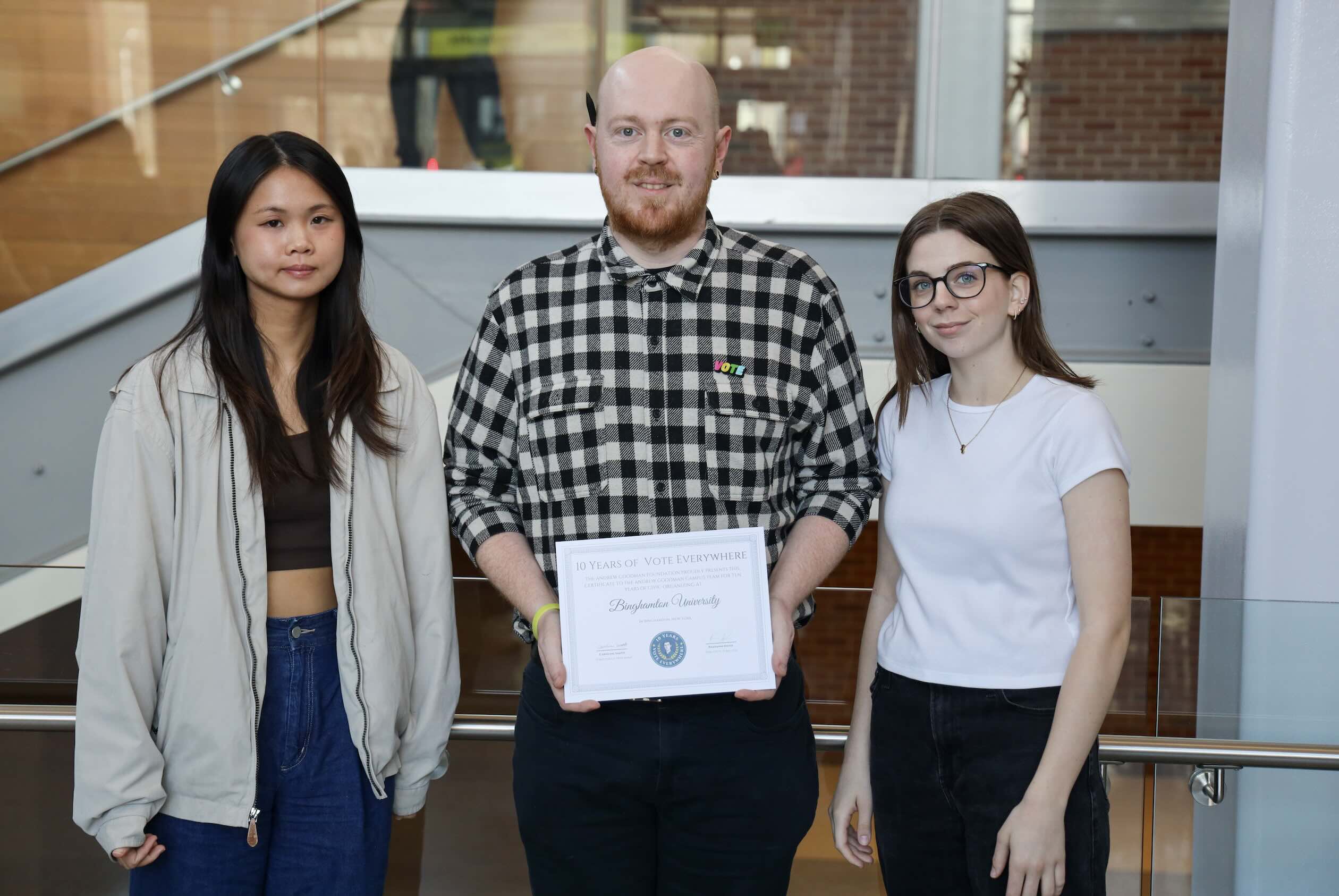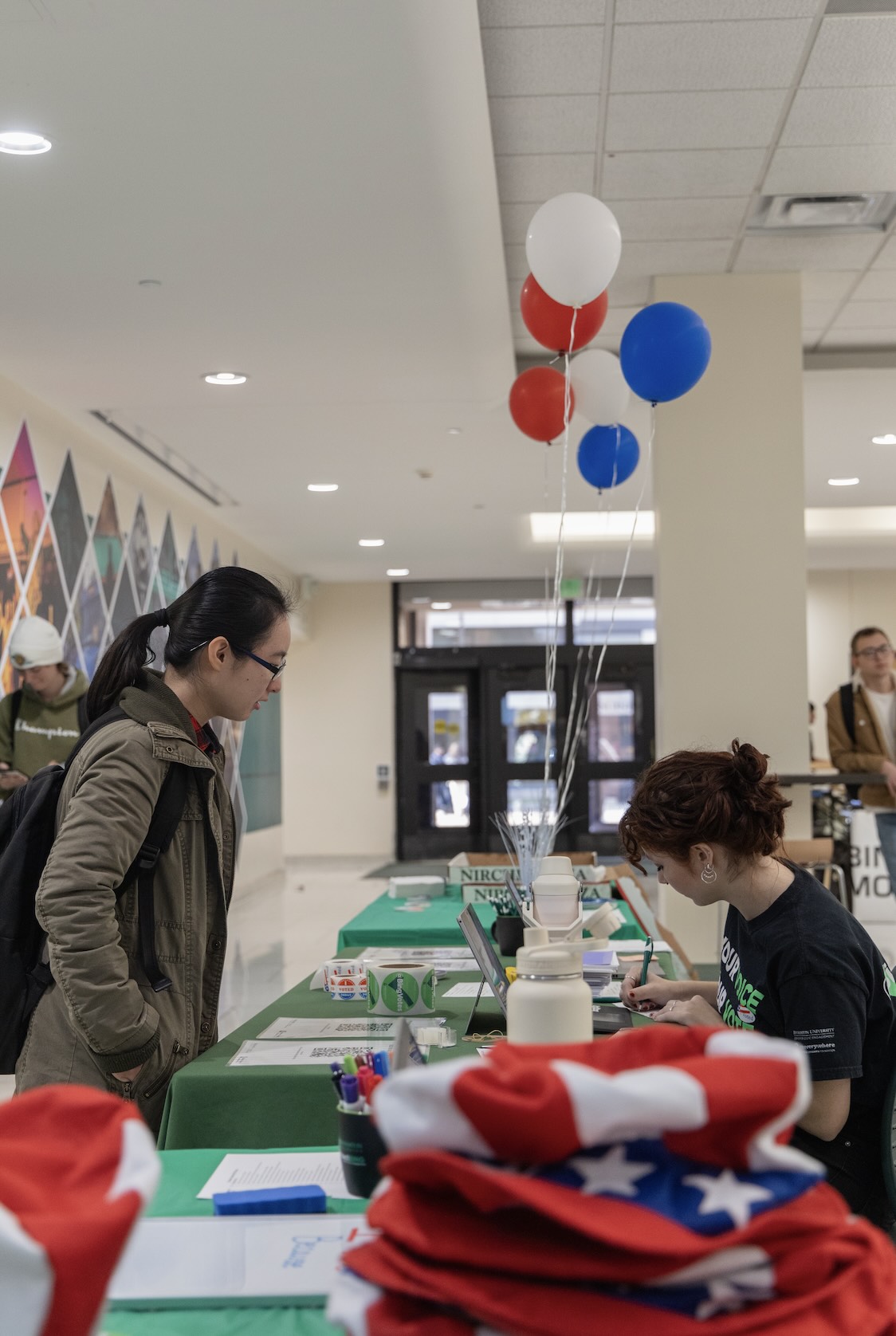The Center for Civic Engagement was established in the early 2010s on Binghamton University's campus with the goal of developing active and engaged citizens, particularly through voter participation. The 2014 midterm elections saw low youth turnout on campus, prompting the CCE to collaborate with student leaders and professional staff to devise strategies for reducing voting barriers and increasing registration and turnout rates. In the absence of a consistent structure for voting initiatives, the CCE brought together student organizations and faculty to become one of the founding campuses to participate in the new Vote Everywhere program with the Andrew Goodman Foundation. AGF, founded by David and Sylvia Goodman, launched the program around this time after the impact of Shelby County v. Holder on the Voting Rights Act.

In the first years of the CCE’s voting program, the team focused on addressing common barriers that all students faced in the voting process, including making it easier for students to register to vote and streamlining operations at the campus polling place. Many college voters are not sure how to register, where to vote or what to do when they move (often annually). One early initiative that has remained core to our success was the development of a pre-populated voter registration form for on-campus students, which drastically reduced the number of student registration forms that were not processed due to incorrect campus addressing information. This form also helped educate students on their right to register with their college address, a simpler voting option for many students. The CCE also worked with the Board of Elections to streamline the campus polling place, allowing students from the three campus election districts to use a central check-in process, reducing confusion and wait times at the polls. Next, the team focused on outreach to students residing off campus, providing information on finding their correct polling place. At the same time, the CCE established itself as a central location for students to access and drop off voter registration forms, delivering forms to the Board of Elections on students’ behalf. A voter engagement committee with representation from students, faculty, staff and community partners was also formed.
Nick Doran ‘16, MPA ‘17, a founding Vote Everywhere Ambassador, recalls the initial stages of structured voter engagement on campus, “Partnering with AGF and strengthening the voter engagement team on campus seemed like the natural next step for the CCE. One of the main components of civic engagement is political engagement and the CCE grew to serve as a spot for students to have a source of nonpartisan voting information.”
Having streamlined the registration and voting processes, the team next focused on developing a “bottleneck” approach to voter registration that would reach large numbers of students where they are. In partnership with staff from new student programs, the CCE integrated voter registration into the orientation process for all incoming students. The team also reaches up to 3,700 students through class presentations, registering students to vote and sharing important election information.

These and other strategies have been critical to reducing common barriers that all students face when exercising their right to vote. As a result, we have seen Binghamton’s registration rate rise to above the national average, and our turnout rate increases outpace the national average increases in 2016, 2018 and 2020. Despite these successes, more work is ahead. While our team continues to maintain these core services, new collaborative efforts across the University are focused on the role of student connections in increasing civic engagement.
Make sure your voice is heard! Visit the Center for Civic Engagement’s website for voting information and resources.